13th December 2012 London, UK
My Chevening experience, so far
Nor Ali is one of the two recipients from Brunei of the 2012/2013 Chevening Scholarship. He is studying for an MA in Inclusive Education and Technology at King’s College London.
Looks like it’s my turn this year to share my personal experience as a Chevening scholar! As you read on, you’ll notice it’s going to be slightly different because you’ll be reading the unique point of view of a scholar who happens to be visually impaired.
Though this is round two for me in the UK, it is still my first time studying in central London. So far all I can say is that it’s definitely a big change from the peace and tranquillity of Exeter University where I spent a year doing my in-service PGCE course back in 2010. This time round I chose King’s College London, where I’m currently taking a one year full-time Masters course in Inclusive Education and Technology.
A Taste of City Life
Arriving in London just a few days before the start of my course was rather hectic but exhilarating nonetheless. Sure I was exhausted after the 16 hour flight but the hustle and bustle of city life was more than enough to wake me despite being jet lagged. Everything just seemed new and exciting and the apparent cultural differences of this super diverse city were so overwhelming! Just imagine finding every language and culture, and I do mean every nationality of the world in one huge busy concrete jungle!
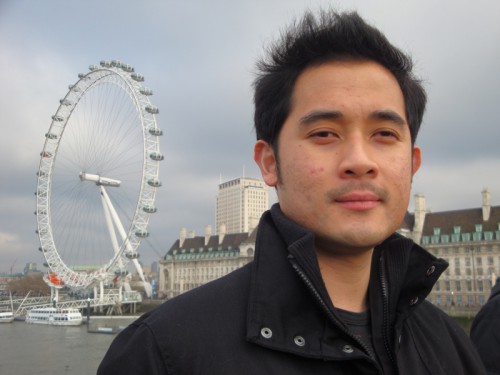
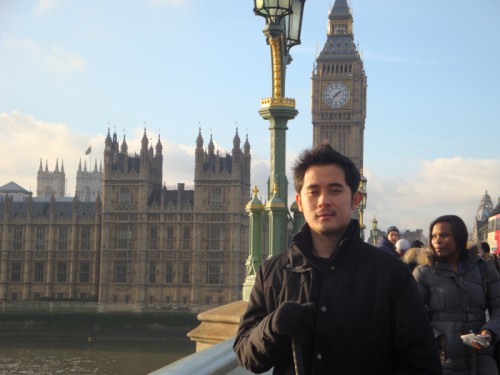

Mobility & Independence Training
Within a week I managed to settle into my cosy apartment in Bayswater, which by chance happened to be a minute’s walking distance to both Bayswater and Queensway tube stations. To get to King’s, all I had to do was walk straight to either one, which might have been easier if I still had my sight. Fortunately, the Chevening secretariat had already considered this and so arranged for orientation and a mobility instructor to get me started.
The weekly mobility training sessions commenced almost immediately, covering the basic route to the nearest tube with much of the training taking place underground. All stations have a VIP (Visually Impaired Person) service that provides assistance to get on and off the train – but not to accompany you whilst on the train. Just show up at the ticket floor and a gracious member of staff will always be there to lend a helping hand.

I remember my first time travelling alone on the tube. It was my first taste of independence after all the training and the realisation of being unaccompanied by my instructor was a frightening one. Sure my father was around but he was advised against interfering with the set programme – except for taking candid pictures while hiding in the background. So it forced me to trust strangers and to lose sight of all that familiar comfort of home and friends. But as the nerves slowly started to slip away I found myself gaining courage and confidence, and I knew then that I could do anything in the world if I just took the time to move out of my comfort zone. By mid-October, I was moving back and forth to KCL and other key places on my own. And now the tube has become my own personal playground!
Life at King’s College
My MA course officially started in the third week of September. At first I was overwhelmed by the amount of critical reading we had to do but after a while I developed a good routine and even made friends with other international students. So far the course has been insightful and I was initially dumbfounded with how little I knew about the subject of e-inclusion. But this is exactly why scholars travel abroad- to grow and learn and think outside the box.
With regards to my unique learning needs, the support I received at KCL has been nothing short of amazing. Here inclusion wasn’t just lip service – a culture of accessibility was evidently seen as the norm rather than an afterthought. All my core readings and hand-outs for instance were provided as needed, and in a format that I could easily access.
To make full use of KCL’s wealth of academic resources, assistive technology rooms equipped with high-tech equipment’s were readily set up in the library to level the playing field for students like myself. Support workers were allocated if or when I needed sighted assistance during field work or in class. My lecturers are delightful to work with and are always willing to make adaptations to their teaching styles. Even my all-ladies course mates did their part by rallying each other around to wait for me at the Waterloo tube station so we could walk together onto campus.
Surviving and Thriving
Though studying is my main priority, the Chevening experience isn’t just about cramming tons of theories and ideas into my head. Being in central London, there is obviously so much I can do and learn beyond what is given in my reading list.
As soon as I had settled in, I set out to join the KCL running club. By then winter was close approaching so I needed to burn that extra belly blubber. Despite being blind, and my apparently bulging mid-section, the club was still enthusiastic about having me on board! As if that wasn’t enough, I even joined the local gym at Bayswater which was a convenient 5 mins walk from my flat. Sure registration was easy, but when it came to showing up for the sessions, procrastinating took over immediately!
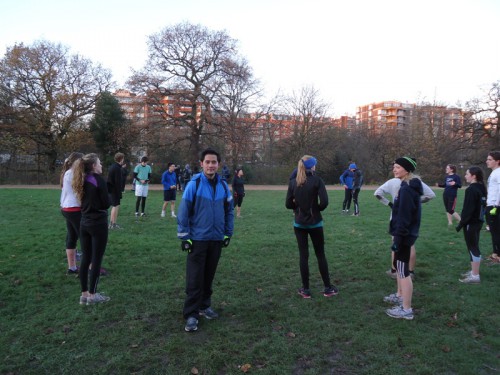
Looking around, inclusive practices weren’t just limited to university life and the underground tube. The city environment is reconditioned with accessibility in mind. Conveniently, walkways have tactile markings on the ground to guide and enable mobility for the blind. Access ramps for wheelchairs are everywhere and not outrageously placed behind buildings anymore. In the cinema, certain movies would be audio described and I especially loved it when I found out that my Sky box at home offered the same feature for no extra charge!
My personal favourite was the touch tours at the British Museum where I was encouraged to literally trace my fingers all over the ancient Egyptian artefacts. Even logging on to internet banking became an easy experience because, unlike back home, the bank provided me with a talking security key!
Reflecting back, the past few months has certainly changed me in more ways than I thought possible. One thing for sure is that I’ll never again complain about the humid heat back home! I still have a long way to go but I think it’s safe to say that my brief time here has opened my mind to new perspectives on what it really means to be an inclusive society.
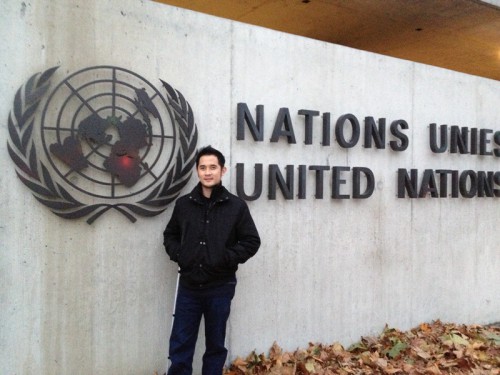

Clearly, living in the city has opened up more doors for me. I feel more empowered here and I believe that it’s this society’s positive interpretation of diversity that has made social inclusion for me a reality. By no means is it perfect but it’s what I’ll take away from my experiences here that will hopefully encourage me to one day embark on initiatives that will make a positive difference in the lives of our differently able community back home.
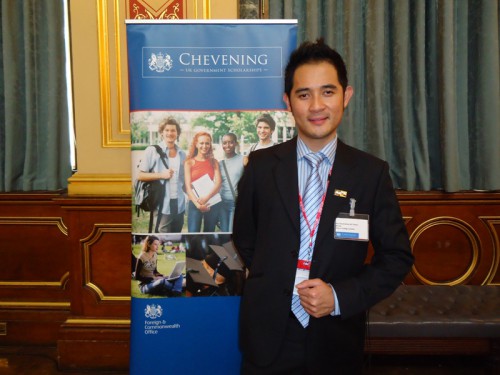
Like many things in life, I’m glad I went all the way for the Chevening scholarship. My heartfelt gratitude goes out especially to the members of the Chevening committee at the British High Commission in Brunei for presenting me with this prestigious scholarship award. Special thanks also go to my Head and Deputy Head at the Special Education Unit, Ministry of Education for their continuous support and unfaltering faith in my work. Last but not least, my utmost gratitude to my loving parents and family for always encouraging me to pursue my dreams despite the odds and challenges ahead.